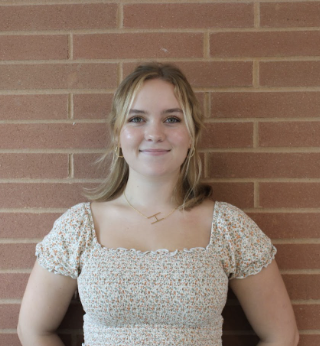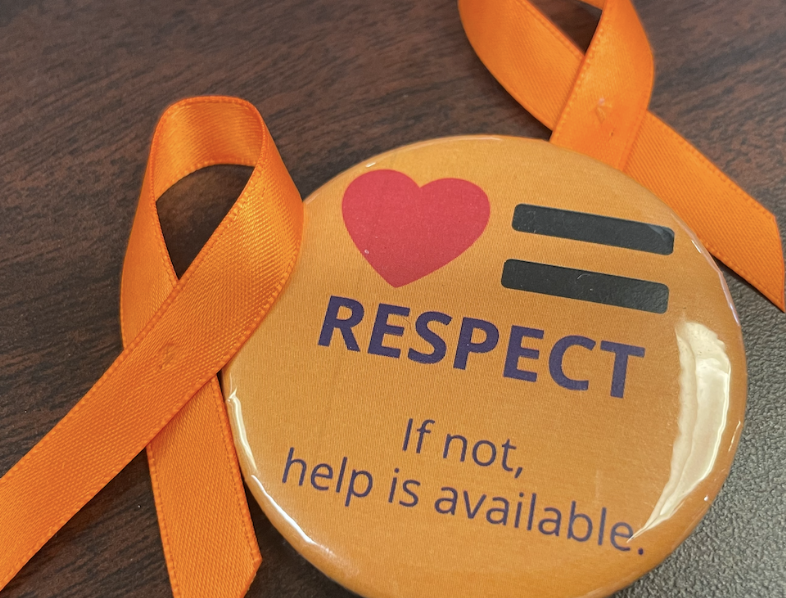Sexual Assault Awareness and Self Defense Club effort causes reflection of teen relationships, domestic violence
Photo taken by Hannah Conn '23
Orange buttons and ribbon pins were distributed to students in the library. Shirts displayed the pins to represent their awareness of teen dating violence and support for victims.
As teenagers, romantic relationships seem like the ideal: the happy couples kissing on Instagram, walking each other to classes and sitting together to pose for pictures. This idealistic version of teenage romance represents only a portion of the reality of relationships. Being as young and inexperienced as teenagers are, it is important to keep in mind the aspects of a truly healthy relationship.
The Sexual Assault Awareness and Self Defence Club (SAASDC), led by social studies teacher and club representative Cathy Schager, is working to raise awareness about the very real experience of relationship violence.
“The club itself is centered around sexual assault awareness and prevention, but this month I thought it was important [that we incorporate] the fact that February is National Teen Dating Violence Awareness month,” Schager said. “Teens may not know if they are in a ‘healthy’ or ‘toxic’ relationship and it is important for us to help educate them on the topic so they can be safe in their [relationships].”
When in a relationship, teens may overly romanticize their partners and, as a result, excuse their potentially negative behaviors. Kaila Kennedy ’23 has found that evaluating a partner’s action can be difficult when you only associate them with feelings of adoration and do not think rationally about their behaviors.
“When looking at my romantic partner’s behaviors or actions, I try to force myself to distance my feelings for them from how I really feel about what they did or said,” Kennedy said. “If they did something I wouldn’t feel comfortable if, say, my closest friend did, I tend to see it as an issue, but it is hard to do and is something I am actively working to keep in mind.”
Though many teens see dating as an important aspect of their lives, Finley Chevrier ’24 finds that it is always important for teens to make sure they are happy in themselves before committing to serious relationships.
“One thing that is important is to always make sure that you yourself are happy, and everything you’re doing isn’t just for the sake of the other person in the relationship,” Chevrier said. “If both of you are happy individually, then it works for you both together.”
Although it is easy to say or teach what is healthy or not in a relationship, abuse can look and be different to everyone. If you are unable to determine if you are in an abusive relationship or do not know how to get out of one, know that there is always a way out. By either speaking to a parent, friend, teacher or guidance member, you are always able to find help.
“The most important thing for teens to know is that they are not alone,” Schager said. “If they are in an unsafe relationship there is always someone willing to listen and help. My biggest message to them is: They are not alone.”
The Rowan Center: Sexual Assault Resource Agency (Stamford, CT): (203) 348-9346

When Web Managing Editor Hannah Conn ’23 was just a freshman, she realized early on that Inklings was meant for her.
“I have always been super interested...
















































